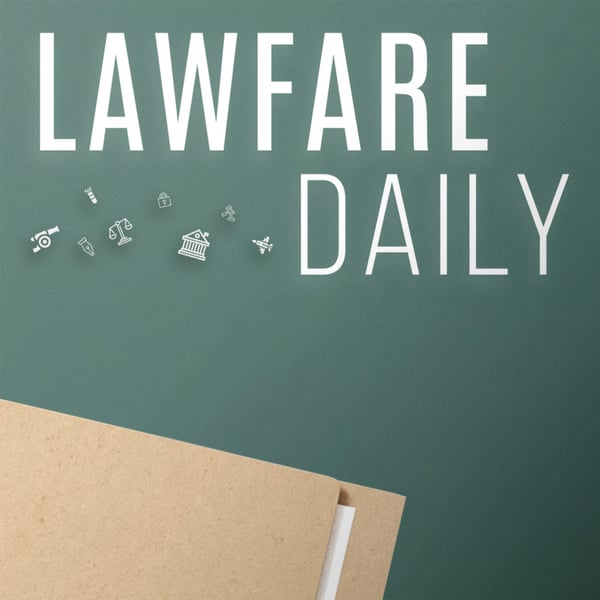Lawfare Daily: Cullen O’Keefe on the Impending Wave of AI Agents
The Lawfare Podcast
The Lawfare Institute
4.7 • 6.2K Ratings
🗓️ 14 May 2025
⏱️ 38 minutes
🧾️ Download transcript
Summary
Cullen O’Keefe, Research Director at the Institute for Law and AI, joins Kevin Frazier, AI Innovation and Law Fellow at Texas Law and a Contributing Editor at Lawfare, and Renée DiResta, Associate Research Professor at the McCourt School of Public Policy at Georgetown and a Contributing Editor at Lawfare, to discuss a novel AI governance framework. They dive into a paper he co-authored on the concept of "Law-Following AI" or LFAI. That paper explores a near-term future. Imagine AI systems capable of tackling complex computer-based tasks with expert human-level skill. The potential for economic growth, scientific discovery, and improving public services is immense. But how do we ensure these powerful tools operate safely and align with our societal values? That’s the question at the core of Cullen’s paper and this podcast.
To receive ad-free podcasts, become a Lawfare Material Supporter at www.patreon.com/lawfare. You can also support Lawfare by making a one-time donation at https://givebutter.com/lawfare-institute.
Support this show http://supporter.acast.com/lawfare.
Hosted on Acast. See acast.com/privacy for more information.
Transcript
Click on a timestamp to play from that location
| 0:00.0 | The following podcast contains advertising. |
| 0:04.4 | To access an ad-free version of the Lawfare podcast, become a material supporter of Lawfare at |
| 0:11.5 | patreon.com slash lawfare. That's patreon.com slash lawfare. |
| 0:18.2 | Also, check out Lawfare's other podcast offerings, Rational Security, Chatter, |
| 0:25.2 | Lawfare No Bull, and The Aftermath. To really drive home the difference between the different |
| 0:33.7 | types of loyalty that we might want to distinguish between for AI agents, we have this concept of AI henchmen, which are agents that are perfectly loyal. |
| 0:42.1 | They'll do what the principal asks them to, and they will be willing to break the law, |
| 0:46.8 | either if they're instructed to, or perhaps the more insidious cases, not when they're instructed |
| 0:50.9 | to, but when they realize it would be in the best interest of their principal for them to break law? |
| 0:56.3 | It's the Lawfare podcast. I'm Kevin Frazier, AI Innovation and Law Fellow at Texas Law and a contributing editor at Lawfare with my co-host, Renee DeResda, Associate Research Professor at the McCord School of Public Policy at Georgetown and a contributing editor at |
| 1:11.8 | Lawfare. |
| 1:12.8 | And our guest, Colin O'Keefe, research director at the Institute for Law and AI. |
| 1:18.7 | I think it would be bad if we try to make this project hinge on having a philosophical account |
| 1:25.4 | of both the law generally and the exact application of every single law |
| 1:29.2 | to every imaginable circumstance in this brand new world of AI agents. |
| 1:34.5 | Today we're talking about his work on AI agents. A forthcoming paper he co-authored proposes |
| 1:40.3 | a constructive path forward on how to adjust legal norms and systems for the age of AI agents. |
| 1:46.2 | We'll be exploring the concept of law following AI, the innovative thinking behind it, and why it's |
| 1:51.8 | a crucial concept for building a better future with AI. |
| 1:56.4 | All right, today we're talking about a truly transformative development, AI agents. |
| 2:02.6 | Imagine AI systems capable of tackling complex, computer-based tasks with expert human-level |
| 2:08.9 | skill. |
... |
Please login to see the full transcript.
Disclaimer: The podcast and artwork embedded on this page are from The Lawfare Institute, and are the property of its owner and not affiliated with or endorsed by Tapesearch.
Generated transcripts are the property of The Lawfare Institute and are distributed freely under the Fair Use doctrine. Transcripts generated by Tapesearch are not guaranteed to be accurate.
Copyright © Tapesearch 2025.

